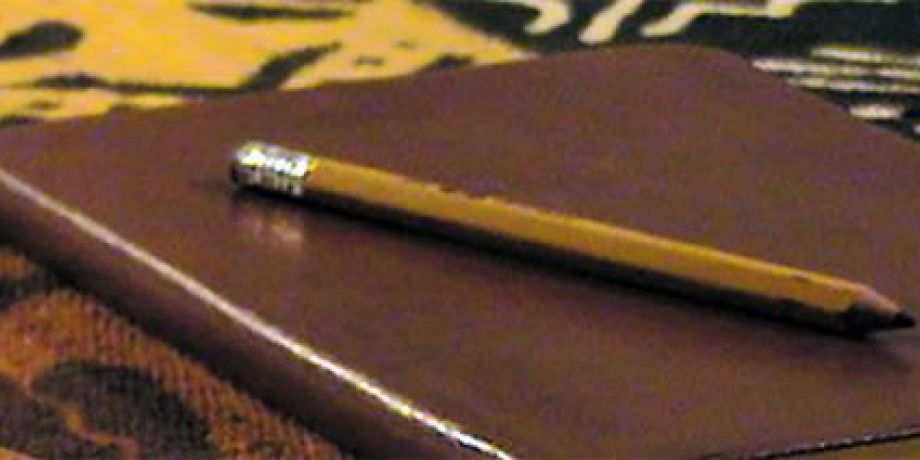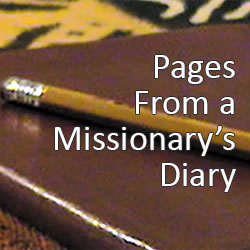
After spending over a year in India from February 1979 to March 1980 I began to understand the reverence that Hindus gave to the cow and the importance for them of not eating beef. In a densely populated country the cow was very important. It gave nourishing milk. It could be used for ploughing the rice fields. Equipped with a wooden trailer it could transport items too heavy to carry. Its dung was useful as fuel or, mixed with water and clay, as an antiseptic gel to paste on the floor of poor houses. The cow in India is esteemed as a mother. How could one eat one’s mother! A religious preacher who ate beef would have no chance of gaining a hearing from Hindus.
 Actually some years previously while on my way for a meal with a Hindu teacher in a local settlement I was discretely approached by a temple priest. He invited me to eat with him and his family. “We are having beef!” he whispered conspiratorially, thinking that for a European this would be an invitation impossible to refuse. Though shocked that this was happening in the grounds of a Hindu temple I politely explained that I had a prior invitation.
Actually some years previously while on my way for a meal with a Hindu teacher in a local settlement I was discretely approached by a temple priest. He invited me to eat with him and his family. “We are having beef!” he whispered conspiratorially, thinking that for a European this would be an invitation impossible to refuse. Though shocked that this was happening in the grounds of a Hindu temple I politely explained that I had a prior invitation.
Then, a couple of years after my return from India I was assigned to work primarily among the Indo-Fijian people. I decided to become vegetarian. We had a good cook in the Lautoka presbytery who was able to cope with this situation. I found vegetarian curry very tasty and so had no problem.
But then while studying for three years in Rome in the mid-1980s, I used to spend my holidays at home in Ireland. My mother was not used to having a vegetarian on her hands, but she made great efforts to adapt. My counselor in Rome, however, challenged me about giving my mother this trouble. So I reverted to eating everything.
Now back in Fiji, I participated last night in a prayer meeting in a rural Catholic Indo-Fijian home. A very open Hindu family had been attending the regular prayer meeting at this home for many years. After the prayers a young man of the family who knew about my time in India asked whether I was still a vegetarian. I told him that I had to give up being vegetarian while at home in Ireland. “Do you eat everything?” he asked. “Yes, I do” I answered. “Father eats EVERYTHING!” he reported to his Hindu family members. His emphatic report indicated that I now ate beef. Once again I was reminded how repugnant beef-eating is to Hindus.
So I have now decided that I will eat meat but not beef.
Talanoa at Natanuku
I always enjoyed the yaqona drinking session after Mass at Natanuku village. In most other villages it was very formal – the matua tabu (priest) sitting in front with the elders forming a semi-circle facing him and the young men serving the yaqona. The women would be absent – preparing the Sunday meal. But in Natanuku the women sat around with the men and youths and joined in the conversation and story-telling.
Today we had a few Catholics from the next village. We don’t see them too often so it was good to meet them. One of them, Mariko, had been to New Zealand picking fruit a few years previously. He told us that his flight there was the first time he was ever on an airplane, and he was mesmerized by the experience. There was the insecurity of leaving mother earth and looking out at the clouds drifting by. It was nice to be served his food – though the quantity left a lot to be desired!
However his worst experience was when he went to the toilet. After taking care of business, he had to search for the right toilet paper – there were at least three different kinds half hidden in the tight space. Then he had to find the flush button. When he pressed what he thought was the right button he heard a massive noisy rush of air. He panicked. “I must have put a hole in the airplane,” he thought. Turning in terror he smashed the toilet door outwards to escape back into the cabin of the plane. He had forgotten that the door opens inwards. Now he had to explain to the hostess how it happened that he had broken the toilet door! A journey never to be forgotten!
Columban Fr. Frank Hoare lives and works in Fiji.